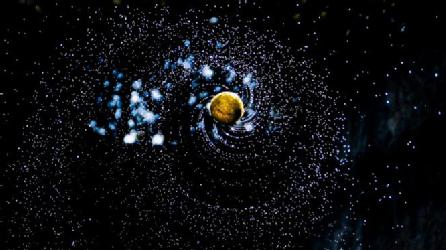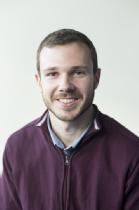Planetary Habitability

Where can life exist?
What makes a habitable environment on Earth physically and sociologically, and how are those environments changing?
We consider the global requirements for life on Earth, the possibility of its replication on other Solar Systems planets and exoplanets and the connected ethical implications. Exoplanet research has shown us that planets exist across a diverse range of conditions, in temperature, size, host star and local gravity among others, and led to a renewed focus on micro-organism survival and the origin of life on Earth. Questions arise from the study of exoplanet habitability that can be reflected back on our own Earth – what makes the Earth habitable, and how does human culture, action and neglect affect that habitability?
Funding Activities
The Science of Quality
Bid for AHRC scoping funding, made in Spring 2020, in collaboration with the Innovative Manufacturing and Future Materials GRP. Science is usually seen in terms of production, in terms of the things it makes. But it is also a form of evaluation, a way of determining the quality of the food we drink, the air we breathe, the materials we build with, and much else. The sciences of quality, from analytical chemistry to food science, are bound up with questions of value that are also central to the humanities and social sciences. These sciences are becoming increasingly important in the twenty-first century, as science becomes ever more wedded to commercial and industrial applications, and as the global environmental crisis draws attention to the quality of natural substances such as air, water and soil. This bid drew together researchers in materials science, law, sociology, and history with a view to exploring the links between science and value in the past, present and future. Although the bid to the AHRC was not successful, follow-up events are planned for 2022 in collaboration with the Innovative Manufacturing and Future Materials GRP.
Related Funding Activity
o DSTL Fellowship , PI Don Pollacco, Topic: Near-Earth environment
o Royal Society , PI Farzana Meru, Topic: Planet-disk interactions
o UKRI Future Leaders Fellowship, PI Heather Cegla, Topic: Stellar activity modelling to enable detection of Earth-like exoplanets
o STFC Funding, Warwick Astronomy and Astrophysics Consolidated Grant 2020-2023, PI Tom Marsh,
o Title: Dynamical stellar models for active evolved planetary systems
PI: Pier-Emmanuel Tremblay, Named PDRA: Tim Cunningham
Related Webinars
A Pathway to the Confirmation and Characterisation of Habitable Alien Worlds
Dr Heather Cegla UKRI Future Leaders Fellow in the Department of Physics, University of Warwick.
Are we alone in the Universe? Since the confirmation of the first planets outside our solar system in the 1990s, we have made tremendous progress towards answering this question.
Watch the recording here.

